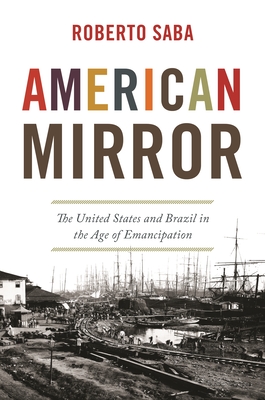

 Princeton University Press
Princeton University Press
American Mirror: The United States and Brazil in the Age of Emancipation


Key Metrics
- Roberto Saba
- Princeton University Press
- Hardcover
- 9780691190747
- -
- -
- History > Latin America - South America
- English
 Secure Transaction
Secure TransactionBook Description
How slave emancipation transformed capitalism in the United States and Brazil
In the nineteenth century, the United States and Brazil were the largest slave societies in the Western world. The former enslaved approximately four million people, the latter nearly two million. Slavery was integral to the production of agricultural commodities for the global market, and governing elites feared the system's demise would ruin their countries. Yet, when slavery ended in the United States and Brazil, in 1865 and 1888 respectively, what resulted was immediate and continuous economic progress. In American Mirror, Roberto Saba investigates how American and Brazilian reformers worked together to ensure that slave emancipation would advance the interests of capital.
Saba explores the methods through which antislavery reformers fostered capitalist development in a transnational context. From the 1850s to the 1880s, this coalition of Americans and Brazilians--which included diplomats, engineers, entrepreneurs, journalists, merchants, missionaries, planters, politicians, scientists, and students, among others--consolidated wage labor as the dominant production system in their countries. These reformers were not romantic humanitarians, but cosmopolitan modernizers who worked together to promote labor-saving machinery, new transportation technology, scientific management, and technical education. They successfully used such innovations to improve production and increase trade.
Challenging commonly held ideas about slavery and its demise in the Western Hemisphere, American Mirror illustrates the crucial role of slave emancipation in the making of capitalism.
Author Bio
Roberto Saba is a historian of the nineteenth-century United States. He approaches the subject from transnational and comparative perspectives. His research and teaching focus on capitalism, imperialism, and slavery. He is also interested in the histories of immigration, popular culture, and travel.
His forthcoming book—American Mirror: The United States and Brazil in the Age of Emancipation (Princeton University Press, 2021)—investigates how American and Brazilian reformers worked together to ensure that slave emancipation would advance the interests of capital. He has also published a study of Confederate migration to Brazil in Traversea: Journal of Transatlantic History.
Source: Wesleyan University
Videos
No Videos
Community reviews
Write a ReviewNo Community reviews